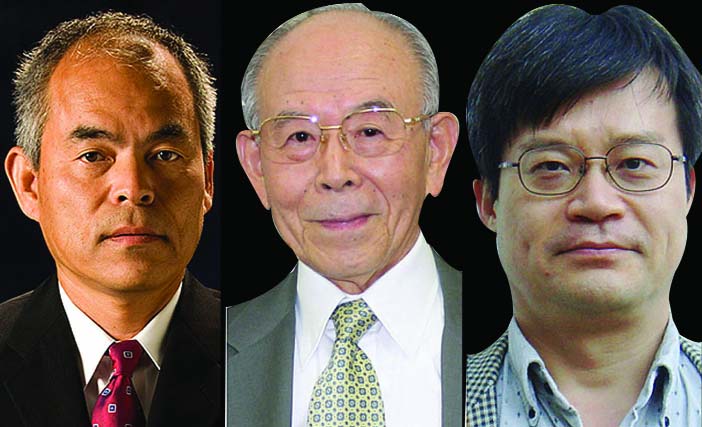
BBC Online :An American and two Japanese scientists won the 2014 Nobel Prize for Physics on Tuesday for inventing the new energy-efficient light source that led to the creation of modern LED light bulbs.Shuji Nakamura, Isamu Akasaki and Hiroshi Amano won the prize for developing the blue light-emitting diode (LED) – the missing piece that now allows manufacturers to produce white-light lamps.The arrival of such lamps has changed the way homes and workplaces are lit, offering a longer-lasting and more efficient alternative to the incandescent bulbs pioneered by Joseph Swan and Thomas Edison at the end of the 19th century.”Red and green LEDs have been around for a long time but blue was really missing. Thanks to the blue LED we now can get white light sources which have very high energy efficiency and very long lifetime,” Per Delsing, a member of the Royal Swedish Academy of Sciences, said.The award is a notable example of a practical discovery winning the prize and stands in in contrast to last year, when the physics prize went to scientists who predicted the existence of the Higgs boson particle that explains how elementary matter attained the mass to form stars and planets.”Incandescent light bulbs lit the 20th century; the 21st century will be lit by LED lamps,” the academy said in a statement. Frances Saunders, president of Britain’s Institute of Physics, said the shift offered the potential for huge energy savings.”With 20 percent of the world’s electricity used for lighting, it’s been calculated that optimal use of LED lighting could reduce this to 4 percent. Akasaki, Amano and Nakamura’s research has made this possible and this prize recognises this contribution,” she said.Akasaki is at the Meijo University in Japan and Amano is professor at the Nagoya University. Nakamura is at the University of California, Santa Barbara.Contacted by telephone in the middle of the night, Nakamura said of the award: “It’s unbelievable.”Nakamura invented the blue-light emitting diode while working at Nichia, an unlisted firm, but received almost no payment for the work until 2004, when the Tokyo District Court ordered Nichia to pay him a record 20 billion yen.Colin Humphreys, an expert at the University of Cambridge who is working on next-generation LED lighting, said the ability of the three scientists to crack the problem of blue light when others had failed was a tremendous achievement.”Their invention of efficient blue LEDs has paved the way for the development of bright, cost effective and, importantly, energy efficient white lighting,” he said.

